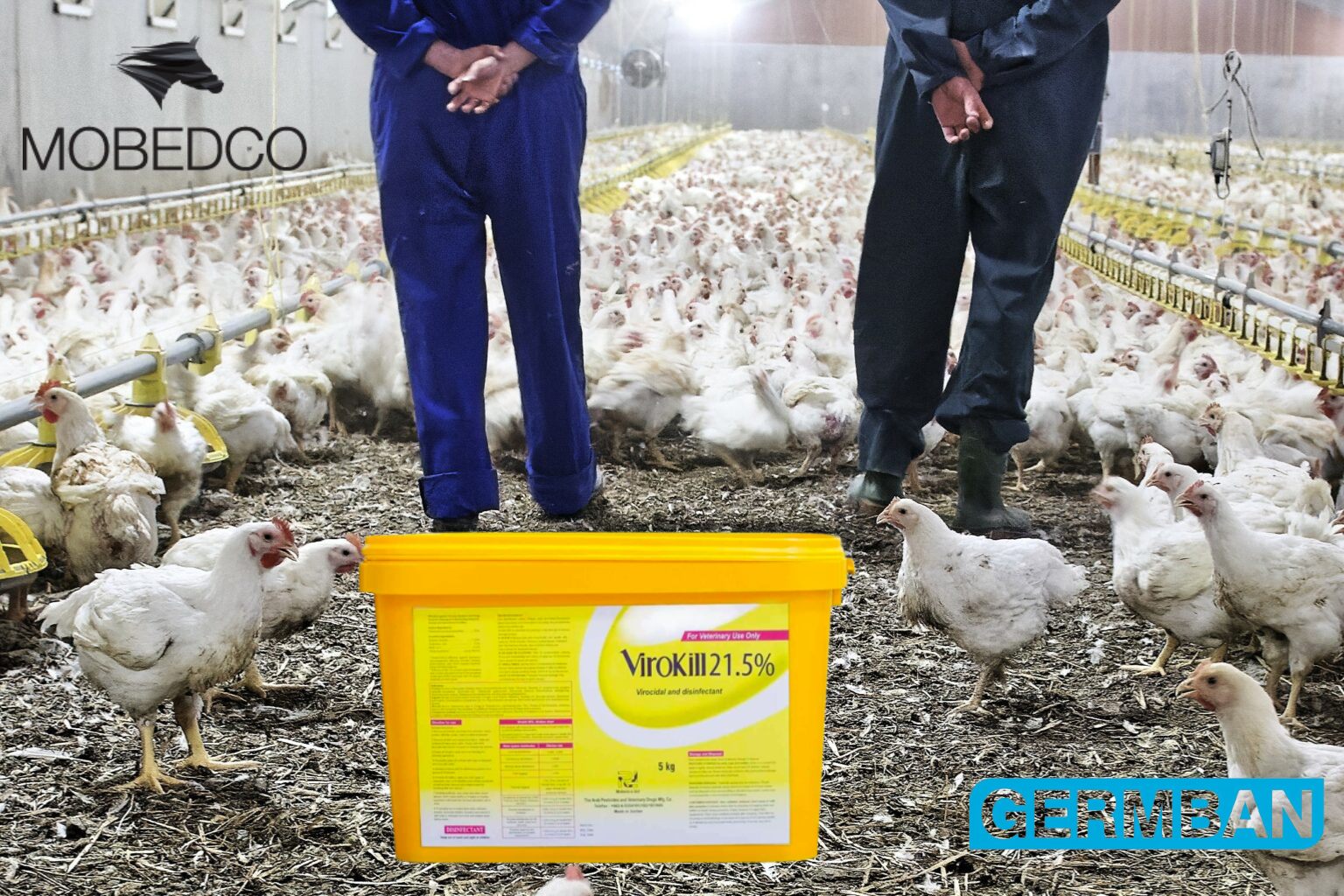
ANNOUNCEMENT
Protecting Against Avian Influenza with VIROKILL: The Importance of Biosecurity

Avian Influenza poses a significant threat to the global poultry industry, with outbreaks leading to immediate and severe financial consequences. However, proactive planning and the implementation of a comprehensive biosecurity program can mitigate these risks effectively.
Why Biosecurity Matters
Biosecurity is the cornerstone of disease prevention in poultry farming. Effective measures can stop the spread of the Avian Influenza virus within and between farm sites. It requires a collective effort from farm management, staff, and suppliers to maintain stringent practices consistently. As experts emphasize, “Prevention comes first.”
Key Elements of Biosecurity
Biosecurity encompasses a wide range of practices, including the sanitation of surfaces, equipment, air, and drinking water delivery systems. Ensuring thorough and regular disinfection is crucial.
VIROKILL Broad-Spectrum Disinfectant
VIROKILL has proven to be a game-changer in combating Avian Influenza. Tested under real-world farm conditions with organic challenges and temperature variations, VIROKILL has been shown to:
- Kill multiple strains of the highly pathogenic Avian Influenza virus.
- Achieve complete virus deactivation in just 60 seconds.
- Work effectively at a dilution rate of 1:200, making it cost-effective and efficient.
Comprehensive Biosecurity: A Necessity, Not an Option
The stakes are high when it comes to controlling Avian Influenza. This disease can spread unknowingly through people, equipment, and vehicles. Biosecurity is not just a set of rules; it’s a philosophy that needs to be embraced across the industry.
Selecting proven disinfectant solutions like VIROKILL is essential to ensure rapid and reliable virus elimination. Properly implemented protocols drastically reduce the likelihood of outbreaks, protecting both poultry and livelihoods.
Biosecurity for Poultry Transportation Vehicles
Transportation has been identified as a significant vector for the spread of Avian Influenza. Vehicles contaminated with infective particles can transfer the virus over large distances, even across borders.
To minimize these risks, follow these guidelines:
- Dry Cleaning and Disinfection:
- Thoroughly clean and disinfect all internal and external surfaces of vehicles and trailers.
- Use a heavy-duty cleaner to degrease surfaces, rinse with high-pressure water, allow to dry, and then apply a broad-spectrum disinfectant like VIROKILL.
- Wheel and Footwear Hygiene:
- Wash and disinfect wheels and wheel arches at each site entrance.
- Use boot baths to disinfect footwear before entering the farm.
- Personal Hygiene and Protective Gear:
- Wash hands or follow the site’s shower-in, shower-out policy.
- Use site-specific protective clothing provided by the farm.
- Regular Vehicle Cleaning:
- Disinfect vehicles, including the driver’s cab, after each journey and at the end of the workday.
By adhering to these guidelines, poultry producers can not only limit the spread of Avian Influenza but also foster a culture of high biosecurity that benefits the entire industry.
Commitment to Prevention
Avian Influenza is unforgiving, but proactive measures make a significant difference. As industry experts stress, “Biosecurity is more than just another procedure; it’s an ongoing commitment to protecting poultry and the industry as a whole.”
With VIROKILL as part of a robust biosecurity program, poultry producers can confidently safeguard against the risks of Avian Influenza and ensure the long-term sustainability of their operations.







